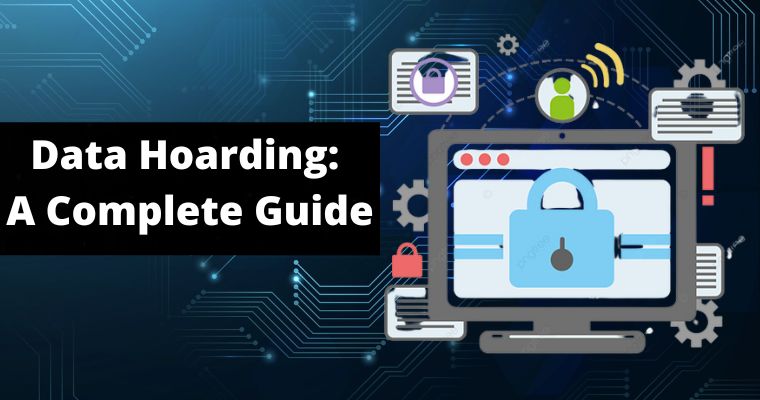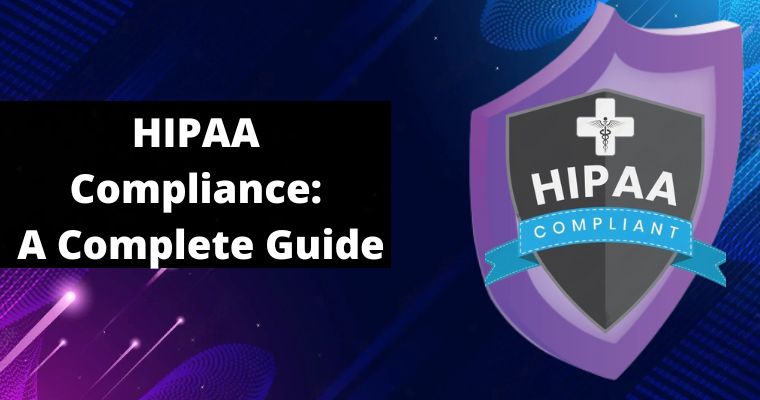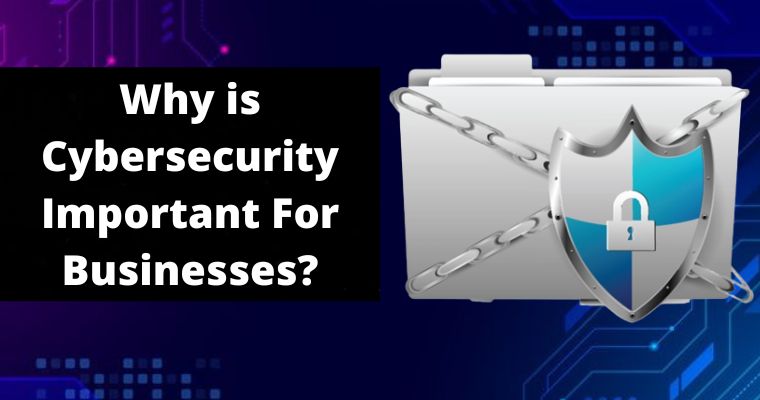Table of Contents
What is Data Hoarding?
Data hoarding refers to the excessive collection and retention of data that offers little to no value. It is just like the physical accumulation of items.
So, if I define data hoarding, it simply means gathering and storing data. Many people keep electronic material even when it is no longer in use.
Feeling that throwing anything away can lead to messing up. People are not even sure that they want to throw things away. However, digital hoarding is not as recognizable as it should be.
Digital hoarders do not need manual force to keep and maintain the data. They don’t even need any actual space in their homes to preserve the data.
Instead, electronic materials are saved in laptops, smartphones, or PCs. In short, everything is stored in electronic devices. Electronic devices can run out of storage, but they will not need physical space as much as an accumulator.
Many people consider digital hoarding positive. Members of an active Reddit community tend to be digital librarians who preserve the information for various reasons.
These reasons include legal requirements, competitive requirements, cultural and familial requirements, etc.
People claim that they are preparing for the end of the internet. They do data hoarding for the time when some or all digital resources are damaged.
Governments don’t even allow people to access specific digital assets, so it is self-explanatory why people preserve the data.
We can consider data hoarding as a conservation of crucial information mainly when entities forbid access to it.
Whatever the reason is, it does not mean that digital hoarding is not detrimental. People who tend to save all the data will need more hard drives and power to handle that data.
Digital storage capacities are increasing, and users will have a place to store that data.
Examples of Data Hoarding
Our mobiles and other devices are proof of digital hoarding. There are a lot of spam emails and other junk emails which are lying in your inbox.
Do you delete them? Most of us don’t.! That is an example of data hoarding because we keep the data that is of no use.
The second example is:
Suppose you use Facebook and save a lot of posts related to shopping, etc. Your chats with everyone are saved. You don’t want to delete those posts because you think that you can make use of those posts in the future.
You don’t delete the chats because you think that you will need those even after years. Practically, you won’t need all of those chats after years but still preserve them.
This is also an example of data hoarding.
Sometimes digital hoarders attach their feelings to the data, which is why they can’t delete it.
What is Cloud Hoarding?
Cloud hoarding refers to the practice of accumulating and storing vast amounts of data in cloud storage services. This data can include anything from personal files like photos and documents to professional data like backups and business records.
Who are data hoarders, and what are the Types of data hoarders?
A data hoarder is a person who stores the data.
Various types of data hoarding are not identical in all cases. People do it for various reasons and motives.
The following are the data hoarders:
Anxious hoarder
Anxious hoarding is done when people are fearful that their action of deleting the data can cause severe consequences. These hoarders are anxious that if they delete the data, it could lead them to be in a serious situation.
They have a fear of losing something which could be important in the future. They keep every data with them regardless of its use in the future.
An example of anxious boarding is:
Suppose you took maternity leave and still have kept all the documents and things needed during the maternity leave. Do you think those documents are of use after one or two years? I don’t think so.
But anxious hoarders will think they are of use. They will think things like if someday HR asks for those documents, what if something happens, and I will have to show all the documents, etc., to give a reason for keeping those documents.
They think that if they don’t keep the data, it can cause serious trouble for them.
Collector
This type of hoarder has great organizational skills, and they properly store the data. They are completely different from disengaged hoarders.
If they store the data, they organize it properly so that it won’t look like a mess.
Compliant hoarder
They are also known as “hoarders by instruction” because they are more specific to workplaces.
Compliant hoarders are those who might hold the data because they are ordered to do so. They are less emotionally attached to the data and more likely to delete it when they think the data is no longer in use.
Let’s take an example.
Suppose you are working in a company. The company asked its employees to keep the files and other information safe. Here you are ordered to keep it safe.
Complaint hoarders work like this. They don’t have the power to delete to save the data.
Disengaged hoarder
Disengaged hoarder is the one who wants to clean up the data, but they don’t know where to start cleaning, and they don’t even try to make an effort to learn how they can.
These are perceived as lazy because when the data accumulates over time and ends up with a mess of digital clutter, they realize that.
An example of disengaged hoarding is:
Suppose you are not deleting the data and think it is fine if you don’t delete the unnecessary data. One day, you look over at the data and realize it is a complete mess.
Then you don’t know from where you can start deleting that, and you left that as it was without taking any steps to organize that.
Data Hoarding for Beginners
Many of you might be thinking of starting a data hoarding at a personal or business level.
If you are thinking of starting it as a business, the following are the things that you should do:
Register yourself on any online platform
If you know graphics, design, and computers, you can start digital hoarding from your home. You can take clients from many platforms like Linked In, Upwork, etc.
After getting the client, you just have to store their data and increase your business.
At the individual level.
You can store your data on hard disks but let me tell you, you have to take care of that hard disks; otherwise, your data can be damaged.
Advantages of Digital hoarding
You might be interested to know about the advantages of digital hoarding as many people only talk about its disadvantages.
But let me tell you, data hoarding has many more disadvantages than advantages. It only has a single advantage: “no access latency.”
It means that if you have any queries related to any past data, you can check them because the data is stored.
Many times, the data of the past is very helpful in solving our queries and confusion.
Disadvantages of Data Hoarding
The disadvantages of data hoarding can be of various types. It can affect your mental health and functioning throughout the day. Hoarding has also become a disorder for many people, which can severely impact their mental health.
It can be more harmful than you think.
Slow working of devices
Unnecessary data impacts the performance of electronic devices. They will work slower because hard drives have a lot of data to handle.
Let’s connect this to a real-life example:
Suppose you are walking without any baggage. For sure your speed of walking will be good. Now imagine you have a lot of things with you. Will you be able to move as fast as you can when you don’t have any luggage? No..!! Right?
The same thing happens with our devices. They can’t work properly if we store a lot of data in them.
Reduces productivity
If more data is stored, it will take you more time to find the thing you are looking for, ultimately leading to less work done.
If you have sorted things out and properly managed the crucial data, it will be much easier for you to find the things and work efficiently.
An example of this can be.
Suppose you have fifty dresses in your wardrobe and organize those properly. You only keep the dresses which you wear. Would it be easy for you to find a particular dress? Yes…Right?
Now imagine you don’t organize your wardrobe. Would it be easy for you to find a particular dress? Won’t it be time-consuming? Yes.Right?
In the same way, it is important to keep the data of use and organize it. Otherwise, it will take time.
Anxiety
Most people feel bothered by the mess and disorganization, and the fear of losing something important prevents them from organizing the mess and keeping only the important data.
Suppose you have a lot of work in a day and you don’t even know how to do it. Half-day has gone, and still, you have no idea how to do it. Will you be frustrated and stressed? Obviously, yes..!!
In the same way, unorganized data can be a reason for stress and anxiety for many people.
Cyber security risks
Cyber security is saving our lives from a lot of cyber-attacks. The more data you have, the more risk there is.
Suppose cyber-attackers managed to hack your device and steal the data. If you have saved the previous data, the severity of the risk will be increased because the criminal can steal more data. You will need more resources to keep the data safe.
This is how data hoarding is affecting security.
Environmental risks
Large data servers use a high amount of energy, negatively impacting the environment because it increases an organization’s carbon footprint.
Data Hoarding in Mobile Computing
The cached data is stored in mobile devices, and hoarding of the cached data ensures that the data required for the computing is available 24×7, even when the device is not connected to any network.
In short, the data should be available every time. It doesn’t matter whether the device is connected to the network or not.
How can you stop data hoarding? Is it compulsory to stop data hoarding?
There is no such rule stating that it is compulsory to stop digital hoarding. But if you want to stop and look for ways that will help you stop data hoarding, then the below-mentioned points are for you.
Review the data that you have stored and categorize that into groups.
You can also use the “judge” trick. Judge everything according to the last time that you used it. If you have not used something for months and years, you should consider deleting it because the chances are high that the data is unnecessary.
Unsubscribe the emails that are constantly filling up your inbox because spam emails are of no use, and some other emails are of no use to you.
Create separate folders to store your data and keep the data organized.
Avoid keeping random files on your desktop and keep it clean as unnecessary files are just taking up space.
Delete the duplicate documents on a single device because you can use that whenever needed if you have one copy. There is no need to store more than one copy of any data. It is just space-consuming.
These are some of the ways to help you stop data hoarding.
What is the importance of data caching in mobile computing?
Mobile caching is a technique used by mobile applicants to reduce the following things:
- Bandwidth usage
- Battery consumption
- Lag
Data hoarding has both its advantages and disadvantages. In this article, I have told everything about digital hoarding. If you still have anything in your mind regarding this, ask me in the comment section.
FAQs
Can you consider hoarding a hobby?
Well, this depends on the individual’s experience. They might use data hoarding as a hobby, or it may be a problem they want to get out of.
Can anyone stop being a data hoarder?
Yes, of course, you can. There are many things that you can do to stop being a data hoarder.
Is data hoarding and digital hoarding the same?
Yes, data hoarding and digital hoarding are the same terms.
What does data hoarding mean in cyber security?
It is an accumulation of saved files and information, whether on a personal computer or within any corporation.
Is digital hoarding disorder?
Yes, it is often recognized as a sub-type of hoarding disorder. There are four types of disorders.



